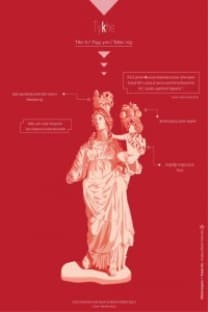KARANTİNA SÜRECİNDE BİR YOL GÖSTERİCİ OLARAK YOSHİ OİDA
Oyunculuk, Yoshi Oida, Görünmez Oyuncu, Covid-19
Yoshi Oida as a pathfinder during the quarantine
Acting, Yoshi Oida, Invisible Actor, Covid-19,
___
- Barthes, R. (2008). Göstergeler İmparatorluğu. (Çev: T. Yücel). (2. Baskı). Yapı Kredi Yayınları.
- Bharucha, R. (1988). Peter Brook’s ‘Mahabharata’: A View from India. Framework: The Journal of Cinema and Media, 35, 33-62. http://www.jstor.org/stable/44111642
- Brook, P. (1999). Threads of Time: Recollections. (Illustrated edition). Counterpoint Press.
- Camus, A. (2007). Sisifos Söyleni. (Çev: T. Yücel). (10. Basım). Can Yayınevi.
- Carlson, M. (2006). Speaking in Tongues: Language at Play in the Theatre. University of Michigan Press.
- Chong, W. (2020, Nisan 20). Online Theater Manifesto. Théâtre du Rêve Expérimental. https://www.theatrere.org/online-theater-manifesto-in-english
- Dasgupta, G. (1987). ‘The Mahabharata’: Peter Brook's ‘Orientalism’. Performing Arts Journal, 10 (3), 9-16. https://doi.org/10.2307/3245448
- Flakes, S. (1975). Yoshi and Company. The Drama Review: TDR, 19 (4), 36-40. https://doi.org/10.2307/1145013
- Hinds, C. & Woolgar, C. (1990). A Towering Talent. Theatre Ireland, 23, 6-9. http://www.jstor.org/stable/25489520
- Laozi. (2017). Tao Te Ching. (Çev: S. Özbey). (2. Basım). Türkiye İş Bankası Kültür Yayınları.
- Oida, Y. ve Marshall, L. (2013). Görünmez Oyuncu. (Çev: Ö. Turhal de Chiara). Boğaziçi Üniversitesi Yayınevi.
- Oida, Y. ve Marshall, L. (2016). Oyuncunun Oyunları. (Çev: Ö. Turhal de Chiara). Boğaziçi Üniversitesi Yayınevi.
- Savin, J. (2001). The Readiness Is All: Peter Brook’s Thirty Years in Paris. Shakespeare Bulletin, 19 (1), 37-39. http://www.jstor.org/stable/26356022
- Schechner, R. (1985). Between Theater & Anthropology. University of Pennsylvania Press.
- Schechner, R., La Bardonnie, M., Jouanneau, J., Banu, G. & Husemoller, A. (1986). Talking with Peter Brook. The Drama Review: TDR, 30 (1), 54-71. https://doi.org/10.2307/1145712
- Scott, T. (1981). Yoshi Oida’s ‘Interrogations’. The Drama Review: TDR, 25 (2), 121-124. https://doi.org/10.2307/1145402
- Suzuki, D. T. (1984). Zen Budizm: D. T. Suzuki’den Seçme Yazılar. (Çev: İ. Güngören). (2. Baskı). Yol Yayınları.
- Başlangıç: 2016
- Yayıncı: Düzce Üniversitesi
İÇ MEKÂN RESİMLERİNDE YATAK TEMASI VE ÇIPLAK KADIN BEDENİYLE İLİŞKİSİ KAPSAMINDA MAHREMİYET OLGUSU
ORTAÇAĞ’DAN AVANGARD’A BEDEN-KAFA İLİŞKİSİNİN İMGESEL HALLERİ
KARANTİNA SÜRECİNDE BİR YOL GÖSTERİCİ OLARAK YOSHİ OİDA
İMGESEL TASARIM: GERİ DÖNÜŞEN SANATIN MÜZEYE YANSIMALARI
ÖRME TEKSTİL YÜZEYLERİNDE YENLİKÇİ SANATSAL İFADELER: ISABEL BERGLUND
